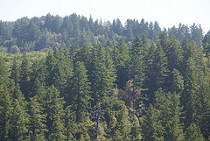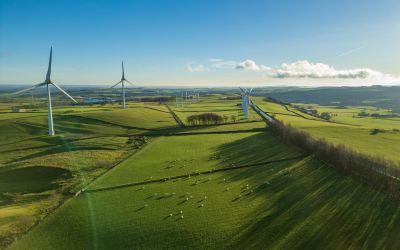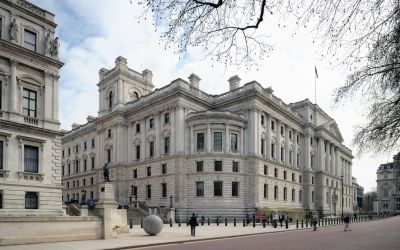Government and business apprehensive after forest sale backlash
The UK Government is amidst consultation, and may backtrack on forest sale proposals, following a strong revolt. This could leave some commercial businesses rethinking their plans.

 The UK Government is amidst consultation, and may backtrack on forest sale proposals, following a strong revolt. This could leave some commercial businesses rethinking their plans.
The UK Government is amidst consultation, and may backtrack on forest sale proposals, following a strong revolt. This could leave some commercial businesses rethinking their plans.
Caroline Spelman, the Environment Secretary, had been planning to dispose of the 140 national nature reserves controlled by Natural England, however plans may soon be scrapped, and much of the public lies in anticipation that plans to sell forests will also be abandoned.
"Officials and Natural England have been scoping a range of options but ministers have decided that the [reserves] will remain in public ownership," said Spelman.
"Opinion polls suggest over 80 per cent of the public wants to keep our woodlands in public hands for future generations; yet the government is only consulting us on how the woodlands should be privatised,” said David Babbs, Executive Director of the campaign group 38 Degrees.
“You’ve mobilized the mob,” said conservative writer James Delingpole, on the Radio 4 programme, Any Questions?, Friday (4 February), in reference to campaigners peacefully petitioning for the retention of publicly owned woodlands.
The widespread disagreement to forest sales, and growing skepticism from the public, could prompt a change in strategy from businesses that anticipate leasing the land, if the sale goes ahead.
Businesses may use the opportunity to improve their image of corporate social responsibility, by continuing to conserve procured forests.
Joe Fielding, a chartered forester who runs the website Woods 4 Sale, said the move could be beneficial.
"The Forestry Commission has done a pretty poor job of managing some of its land, and I tend to believe our woodlands would be better managed in the private sector anyway," he told BBC News.
However an increasing backlash against the sale proposals indicate that people do not believe that forests in commercial hands will be conserved. They could be bought by developers and turned into housing developments or private leisure facilities, or to energy companies looking to develop wind farms, or burn wood as biofuel.
"Behind the spin, our public woodlands are still in danger," said Babbs.
The Government's own impact assessment, released 1st February, has cast doubt over claims by ministers that the controversial sale would raise between £140million and £250million, helping the Department of the Environment, Food and Rural Affairs (DEFRA) meet its spending cuts target. The public and campaign groups increasingly doubt the economic benefit from the sale, suspecting a hidden Government agenda.
Profits from forest sales may also be lost out due to a tax loophole, where woodland owners are exempt from paying inheritance tax, capital gains tax and income tax. This makes forests increasingly attractive to businesses, while public trust is further lowered.
Some woods, the Government claims, will be protected by giving them to charities, while others – that provide more commercial opportunities – will be sold to private companies. However, the coalition has not said how charities or local environment groups are expected to raise funds to buy and maintain forests, and the public and countless institutions are skeptical that the plans will provide any benefit to society or the environment.
Forestry is an example of what is wrong with our politics, said Caroline Lucas, the Green Party's first MP in the House of Commons. The vast majority of people want to see forests here and abroad protected. But instead of action, they get rhetoric, spin and broken promises, she said.
The coalition recently went back on pledges to ensure the Forestry Commission's ongoing restoration of ancient woodlands that have been planted with conifers – probably the most important environmental restoration project in the UK.
Government consultation surrounding forest sales remains in progress, raising some public hope of saving the forests. Meanwhile businesses are left to absorb the extent of objection from the public as they lie in wait of confirmation. Businesses too, have big decisions to make, if the forest sale goes ahead.
Author: Marianna Keen | Climate Action
Image: dbaron | Flickr

_400_250_80_s_c1.jpg)




